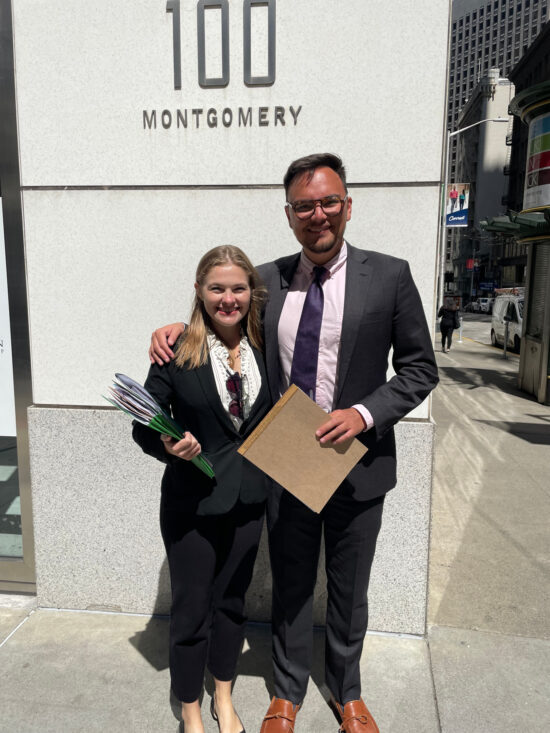Immigrants’ Rights Clinic Student Reflects on Zealous Advocacy and Thoughtful Lawyering
Zealous Advocacy on Behalf of Clients

Representing our client, D, at her Master Calendar hearing affirmed for me the importance of zealous client advocacy. During our quarter in the clinic, our client’s application for Temporary Protected Status (TPS) was approved, and our strategy shifted to requesting that her case in Immigration Court be dismissed due to her newfound status. Fortunately, both the judge and the government attorney agreed with our request. Because the government dismissed D’s case, she can now make her case for asylum to USCIS, the agency that oversees affirmative asylum applications, in a non-adversarial setting. I was skeptical that the judge and/or counsel would agree, but the immigration judge was very accommodating, and the government attorney readily complied with our request.
I thought about what would have happened if I were a lawyer managing this case on my own — and if I didn’t have our Clinical Supervising Attorney, Shanti Tharayil, to push us to think about the cost/benefit to arguing for dismissal in D’s immigration case — and I came to the conclusion that I almost certainly would not have thought about how to strategize in the ways clinic taught me. Law school has taught me to think very logically and thoroughly and assume that everyone else has the same thought process and time to dig deep into issues. But this experience has been invaluable in teaching me that busy, solutions-oriented attorneys and judges see issues and cases differently, and that I can use this to my client’s advantage. In the future, I plan to be more open to making any reasonable arguments that could potentially help my clients.

Reflective and Thoughtful Lawyering
The hearing was also a lesson in thoughtful lawyering. Our various rounds of mooting helped us prepare for a wide variety of scenarios, but there was ultimately no way to predict how the judge and ICE would act during the hearing. Sure enough, several moments caught us off guard.
The hearing highlighted the impossibility of predicting and preparing for every potential scenario in a legal proceeding. But it also underscored the power of internalizing a client’s goals as a north star for navigating that uncertainty. Although we had not practiced responses for any of these situations, we tried to be helpful and agreeable with the judge, and this collaborative-thinking approach worked to our client’s advantage. The curveballs we got, while unexpected, were not especially daunting, and we saw each one as an opportunity to advocate for our client. Our helpful, collaborative approach was motivated by our ultimate goal of getting D’s case out of immigration court, and it paid off with quick and painless dismissal.
